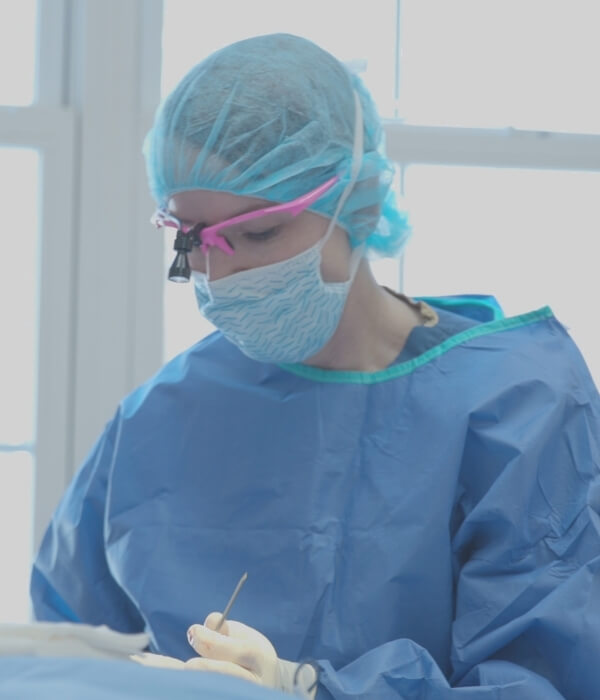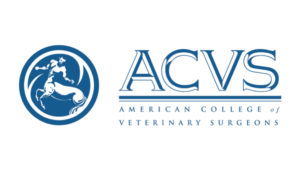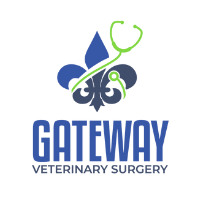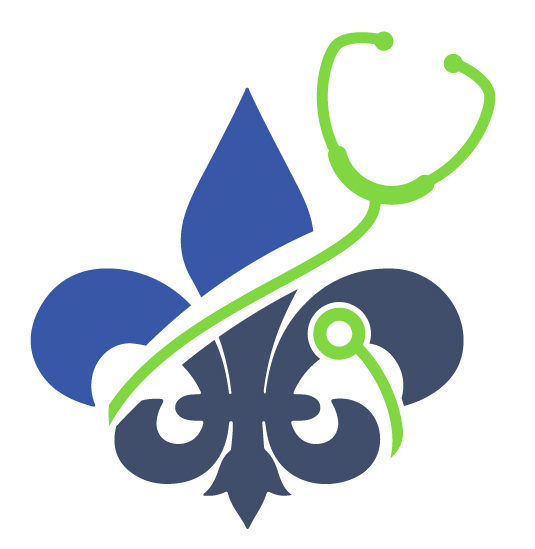FOR PET OWNERS
Pet Resources
FOR PET OWNERS
What is a Veterinary Surgeon?

The term “ACVS Diplomate” or “Veterinary Surgeon” refers to a veterinarian who has been board certified in veterinary surgery. Only veterinarians who have successfully completed the certification requirements of the ACVS are Diplomates of the American College of Veterinary Surgeons and have earned the right to be called specialists in veterinary surgery.
Veterinarians wishing to become board certified must complete a three-year residency program, meet specific training and caseload requirements, perform research, and have their research published. This process is supervised by current ACVS Diplomates, ensuring consistency in training and adherence to high standards. Once the residency has been completed, the resident must sit for and pass a rigorous examination. Only then does the veterinarian earn the title of ACVS Diplomate.

FOR PET OWNERS
Small Animal Conditions
Choose a health topic from the list:
- Achilles’ Tendon Injuries
- Anal Sac Tumors in Dogs
- Atlantoaxial Instability
- Aural Hematoma
- Bone Tumors in Cats and Dogs
- Brachycephalic Syndrome
- Canine Hip Dysplasia
- Castration
- Chylothorax
- Cleft Palate
- Cranial Cruciate Ligament Disease
- Dermoid Sinus
- Diaphragmatic Hernia
- Extrahepatic Biliary Tract Obstruction
- Fractured Limbs
- Gallbladder Mucocele
- Gastric Dilatation-Volvulus
- Gastrointestinal Foreign Bodies
- Hepatic Microvascular Dysplasia or Portal Atresia
- Hip Luxation
- Infraspinatus Muscle Contracture
- Insulinoma
- Intervertebral Disc Disease
- Intussusception
- Laryngeal Paralysis
- Limb Amputation
- Liver Tumors
- Lung Lobe Tumors
- Mammary Tumors
- Mandibular Fractures
- Megacolon
- Nasopharyngeal Polyps
- Osteochondrosis of the Shoulder
- Otitis Externa
- Ovariohysterectomy
- Pain Management
- Parathyroid Tumors
- Patellar Luxations
- Perianal Fistulas
- Perineal Hernias
- Portosystemic Shunts
- Pyometra
- Salivary Mucocele
- Splenic Masses
- Splenic Torsion
- Thyroid Tumors
- Tracheal Collapse
- Urinary Obstruction in Dogs
- Urinary Obstruction in Male Cats
- Urinary Stones
- Vulvar Fold Dermatitis
FOR PET OWNERS
After Surgery
Please see your pet’s discharge instructions for specific recommendations. Call or email with additional questions; please contact your local emergency clinic with urgent concerns after-hours. It is important that your pet rest after surgery.
Recovery from orthopedic surgery typically requires strict rest for two to three months until healing is complete. Running, jumping, climbing furniture, and playing must be prevented during this time. Unsupervised time is best spent in crate confinement or in a small area without access to furniture or stairs. Time outside should be limited to short, leash-controlled walks for elimination.
Following soft tissue surgery, activity should be limited for approximately three weeks while the surgery site heals.
Please monitor the incision for increased bruising and swelling or discharge. If any of these signs of inflammation develops, please call or email for advice. Because licking or chewing at the incision is detrimental, Elizabethan collars should be in place at all unsupervised times until the incision has healed. Elizabethan collars should also be used to protect bandages since chewing or ingesting bandage material is detrimental. If your pet does not tolerate the E-collar, please ask your veterinarian to recommend if an alternative collar will work that will not harm the surgery.
Cold compresses applied to the incision will help decrease inflammation and improve comfort. This may be done as frequently as you choose, assuming your pet tolerates it easily during the initial postoperative time. These can be used for 2 days after surgery.
Bandages must be kept clean and dry: they must be covered with a plastic bag when your pet goes outside, and the bag needs to be removed each time your pet comes inside again. Please monitor bandages carefully for wetness, slipping, odor, or sudden irritation or discomfort. These could all be potential signs of irritation and would mean that an appointment for recheck examination and bandage change should be scheduled promptly.
Bowel movements may be delayed after illness, anesthesia, or surgery. Several days may be needed before the gastrointestinal system returns to normal, and bowel movements are likely to be small and infrequent until your pet is eating with a normal appetite. If you are concerned about constipation, canned pumpkins can be added to the food to help speed the process.
Please call or email if your pet seems painful because individuals vary in their pain level and narcotic tolerance, and doses or medications can be adjusted.

